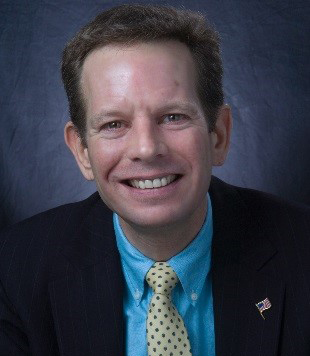You are here
How You Can Make a Planned Gift That Saves and Improves Lives
Amy Macklin, senior advancement officer, recently sat down to answer a few questions about planned giving to the CDC Foundation and the impact these gifts have in protecting the public’s health, safety and security.
Amy, what is planned giving?
A planned gift is typically a gift a donor makes from assets rather than income as a part of the donor’s financial or estate plan. The most common planned gift is a bequest, a gift made through a will or trust. Often a planned gift requires more thought and planning on the donor’s part, and the donor may want to involve an accountant, attorney or financial or other professional advisor in their decision-making.
One easy way to give a planned gift is through life insurance, either as a beneficiary of an existing policy or a new policy. Another option for a donor who is 70-1/2 or older, is to give up to $100,000 annually from an IRA directly to a qualified charity, such as the CDC Foundation, without having to pay income taxes on the distribution.
A planned gift may be unrestricted, or it may be restricted for an endowment or program of the charitable beneficiary. There are many types of planned gifts that can be made while the donor is still living (appreciated securities, artwork, real estate, etc.), but commonly a planned gift is granted once the donor has passed away.
Why would a donor choose to support an organization through a planned gift versus a general donation?
Many donors who make a planned gift also support their favorite charities through annual giving. There are a variety of benefits to making a planned gift.
For instance, there are often tax advantages to making a planned gift, depending upon the type of gift and the situation of the donor. Some planned gifts even provide lifetime income for the donor, such as charitable gift annuities, charitable remainder trusts or deferred gift annuities. Another advantage of a planned gift is that a donor may be able to make a more substantial gift with greater impact than he or she would be able to make otherwise. But I believe the greatest advantage is that anyone can make a planned gift, simply by naming a charity, like the CDC Foundation, in their will or trust—regardless of the size of their estate.
Do you have an example of a planned gift to the CDC Foundation?
 Absolutely. One example I love is the impact of planned giving from long-time Centers for Disease Control and Prevention (CDC) employee, Michael Melneck, pictured here.
Absolutely. One example I love is the impact of planned giving from long-time Centers for Disease Control and Prevention (CDC) employee, Michael Melneck, pictured here.
First, Mike established a named fund in memory of his parents, the Dr. Michael T. and Gloria Melneck Fund for Oral Health Promotion Endowment Fund. Mike’s father was a dentist who worked tirelessly to serve his community, including supporting other parents who ensured their children’s teeth were taken care even though they were not able to afford their own dental care.
Establishing this fund was a way for Mike to honor his father’s legacy and help others too. Subsequently, Mike named the CDC Foundation as a beneficiary of his estate plans. He said that he “wants to see the great work of CDC continued and amplified long after he’s gone.”
Amy, there are many nonprofits out there doing great work. Why would someone want to support the CDC Foundation through a planned gift?
As former CDC director and legend in the world of public health, Dr. Bill Foege said, “Public health might be the greatest measure of kindness, the greatest measure of how to treat each other.”
Good health is something we often take for granted but is so fundamental to our wellbeing, happiness and productivity. People, when healthy, typically aren’t consciously thinking that it’s thanks to the hard work, intelligence and dedication of public health professionals who have committed their lives to keep diseases and other health threats at bay. Supporting the CDC Foundation and the work of the world-class scientists at CDC provides an incredible return on investment in health protected and lives saved.
CDC Foundation supporter, Maria Thacker, tells us, “I think someone should give a planned gift to the CDC Foundation if they are passionate about something in public health and they want to see their money go toward something meaningful, sustainable and life-saving.”
Many donors use their wills to make their most generous gifts. And we are grateful to those who have already remembered the CDC Foundation in their estate planning. For others, our hope is that you will remember the CDC Foundation when you create or revise your will. Then, inform us of your plans so we can recognize you.
If you would like additional information about naming the CDC Foundation as a beneficiary in your will or other planned gift, please contact Amy Macklin, senior advancement officer, at amacklin@cdcfoundation.org or 404-523-1874. Or, you can visit our website. Look for follow-up posts soon on planned giving opportunities.
This post is intended to provide general information that we hope will be helpful to you in your tax, estate, and charitable planning. It is not a substitute for legal or tax advice. Prospective donors are urged to consult their personal tax and financial advisors concerning the specific consequences of making gifts to the CDC Foundation.
